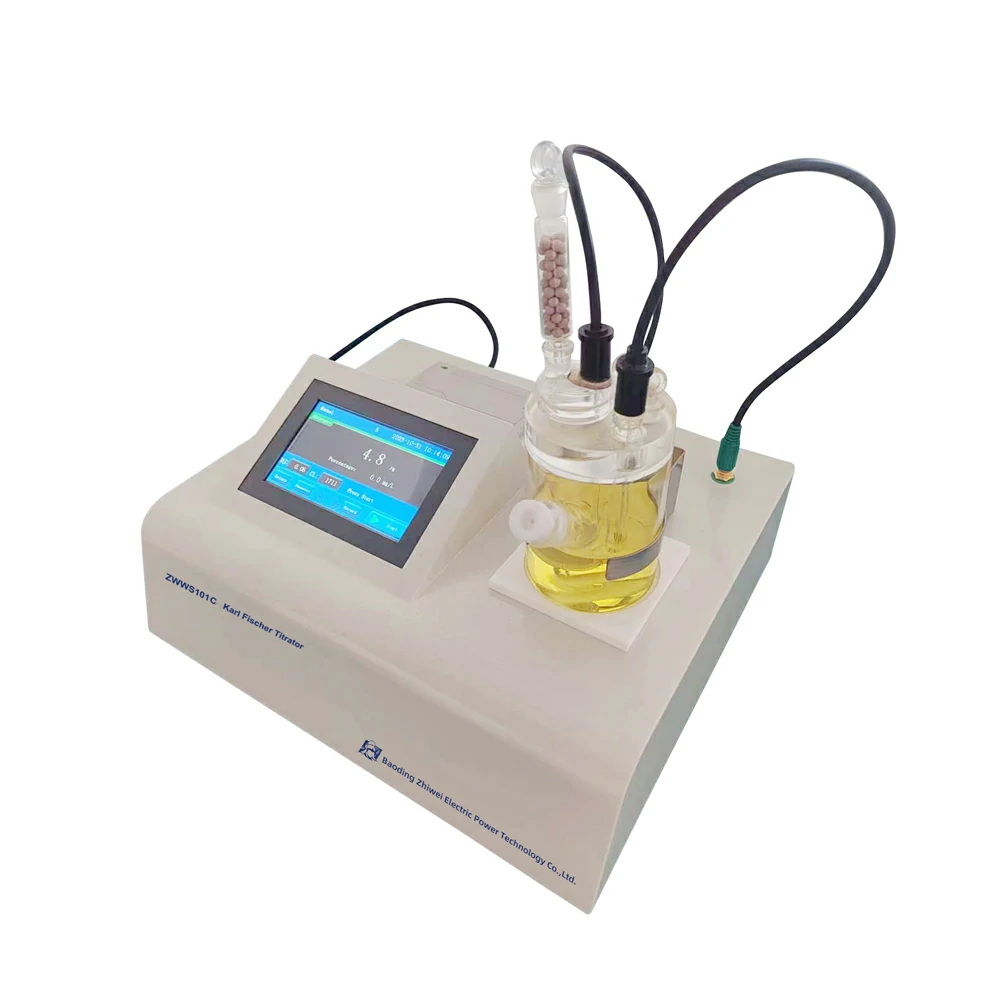When using a coulometric Karl Fischer (KF) titrator for samples with low conductivity, special considerations and techniques are necessary to ensure accurate and reliable moisture determination.
Here’s how the coulometric KF titrator handles samples with low conductivity:
- Optimization of Electrolysis Parameters: Coulometric KF titrators rely on the principle of electrochemical coulometry to generate iodine for the titration reaction. For samples with low conductivity, the electrolysis parameters, such as the current density and electrolysis time, may need to be optimized to ensure sufficient iodine generation for the titration reaction. Adjustments to these parameters can be made based on the sample’s conductivity and moisture content to achieve accurate results.
- Use of Proper Electrolyte Solution: The choice of electrolyte solution is crucial for ensuring efficient electrolysis and accurate titration in coulometric KF titration. For samples with low conductivity, selecting an appropriate electrolyte solution with high conductivity and compatibility with the sample matrix is essential. Commonly used electrolyte solutions include methanol-based or ethanol-based solutions, which help enhance the conductivity of the sample and facilitate the titration process.
- Sample Pre-treatment: Samples with low conductivity may require pre-treatment techniques to improve their conductivity and enhance the accuracy of moisture determination. This could involve dilution with a suitable solvent, homogenization, coulometric kf titrator or addition of conductivity-enhancing additives to the sample. Care should be taken to ensure that the pre-treatment method does not introduce moisture or interfere with the titration reaction.
- Optimization of Titration Parameters: In addition to electrolysis parameters, other titration parameters, such as the titrant concentration, titration speed, and endpoint detection method, may need to be optimized for samples with low conductivity. Fine-tuning these parameters based on the sample’s characteristics can help improve the accuracy and precision of moisture determination in coulometric KF titration.
- Calibration and Validation: Regular calibration and validation of the coulometric KF titrator are essential to ensure accurate and reliable moisture determination, especially when analyzing samples with low conductivity. Calibration standards and validation protocols should be established and followed to verify the performance of the instrument and ensure the validity of the results.
By implementing these techniques and precautions, the coulometric KF titrator can effectively handle samples with low conductivity and provide accurate moisture determination in various applications. Close attention to sample preparation, titration parameters, and instrument calibration is essential to achieve reliable results in coulometric KF titration.

